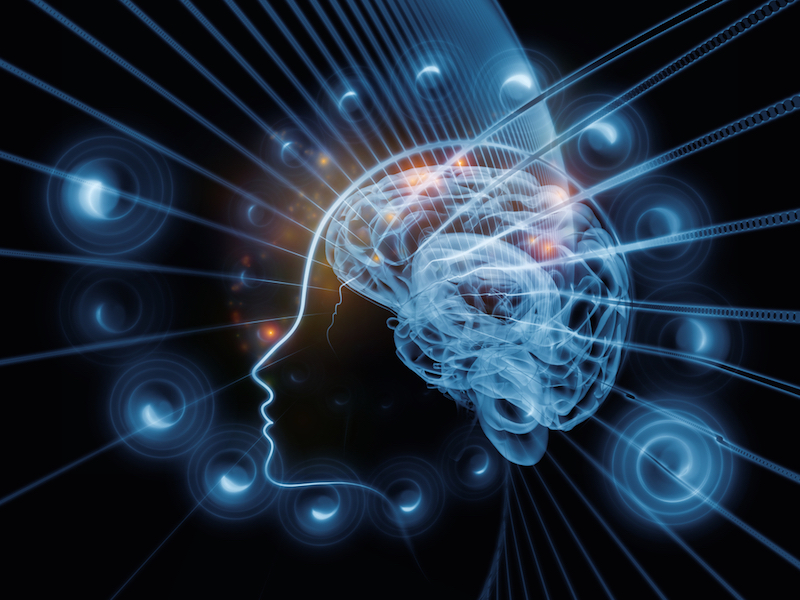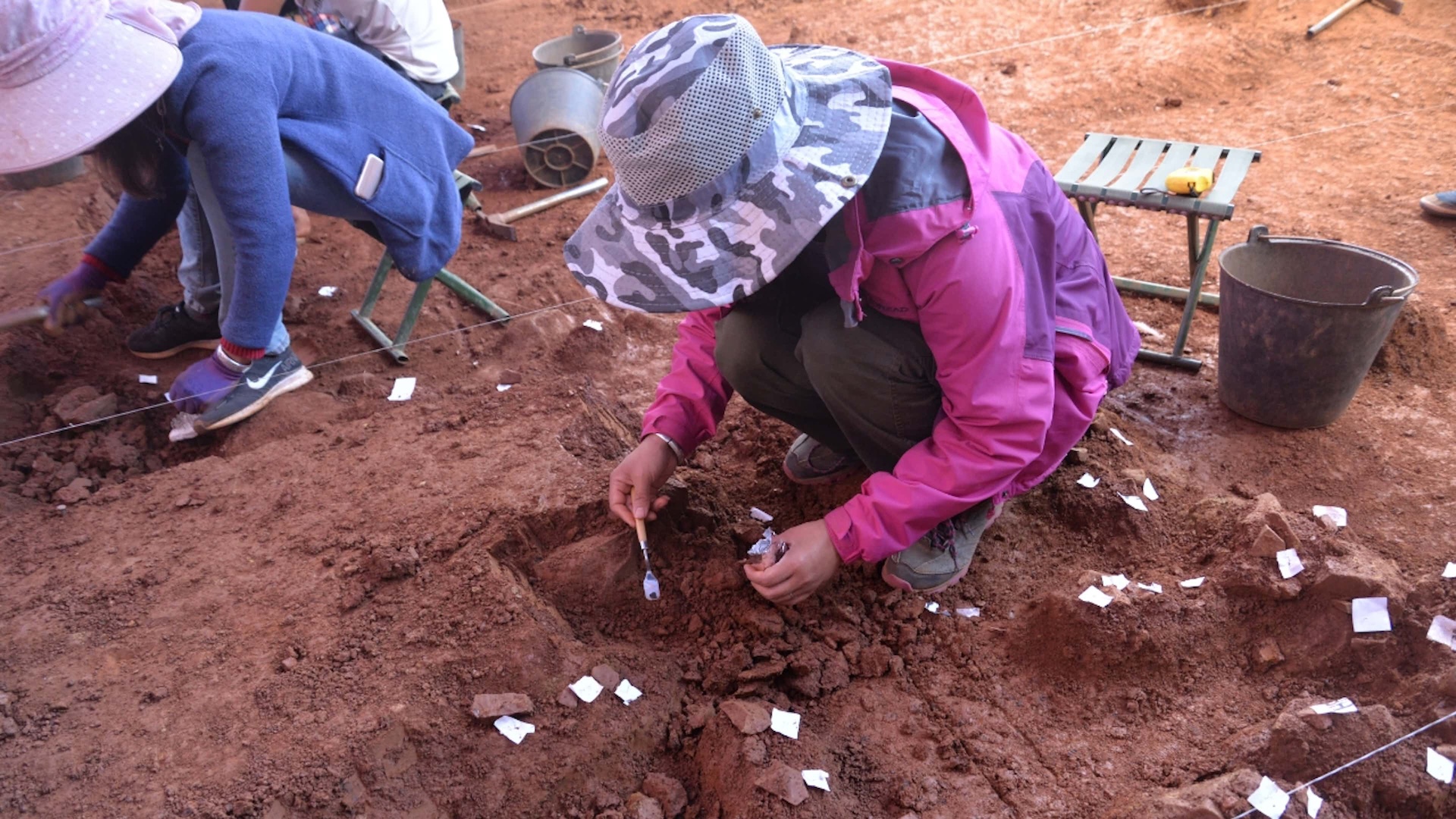
Exercise Fuels Mental 'Time Travel'

Wendy Suzuki is a Professor of Neural Science and Psychology at New York University (NYU)'s Center for Neural Science. A popular speaker, she is a regular presenter at the World Science Festival and TEDx, and is frequently interviewed on television and in print for her expertise regarding the effects of exercise on brain function. Her first book, "Healthy Brain, Happy Life" (Dey Street Books, 2015), is now available. Suzuki contributed this article to Live Science's Expert Voices: Op-Ed & Insights.
In my late 30s, when I first began to exercise regularly, I experienced firsthand the profound effects that exercise can have on both my body and my brain. In fact, these observations completely changed my motivation for going to the gym. It started during a river rafting trip on the mighty Cotahuasi river in Peru, in one of the deepest valleys in the world. On that trip I realized that, although I was healthy, I was not nearly as strong as my fellow river rafters: There were 16-year-olds on the trip who could lift more than I could, and there were 60-year-olds who had more stamina than I did. I knew I had to do something about it.
When I got back, I marched to the nearest gym, got myself a trainer and started building a regular and rigorous exercise routine. I started slowly at first, but I'm happy to say I am still exercising regularly today, almost 10 years later. As I made a gradual yet profound change in my exercise routine, I began to notice an equally profound change in both my body and my brain. I noticed not only clear improvements in my strength, stamina and overall cardiovascular fitness, but also striking improvements in my mood, memory, attention — as well as other things that were more difficult to name, at first. I felt like a poster child for all of those positive brain effects reported so frequently by the press.
Exercise improves mood, memory and attention
As a professor of neuroscience with an active research lab, I specialize in the study of the hippocampus, a brain structure critical for long-term memory, so I was particularly interested in how exercise affected my memory. I noticed the cognitive benefits of exercising especially when I was writing grants, and found it much easier to remember and integrate related findings from different journal articles.
In fact, as reviewed in a 2013 article published in Trends in Cognitive Science, we know a lot about the memory functions of the hippocampus, as well as the effects of exercise on the hippocampus, mainly through studies with rodents. We also know, from a series of key studies published throughout the 1990s, that the hippocampus is one of only two brain areas where new brain cells are born in adults — a process known as adult hippocampal neurogenesis.
Experiments with rodents have shown that exercise (in the form of activity on a running wheel) significantly enhances the rate at which new hippocampal cells are born. In addition, a growing number of studies have shown that, compared to sedentary rats, rats that exercise and experience exercise-enhanced hippocampal neurogenesis show better memory performance on a range of different tasks. The striking improvements I saw in my own mood and memory inspired me to want to understand if the same brain changes that researchers had seen in rodents with exercise were also happening in my brain.
I was so fascinated with this question that I shifted my entire research focus from the study of memory in the hippocampus to the effects of exercise on brain functions in people. (I tell the story of how this personal transformation made me change the research direction in my lab, and the science behind it, in my new book Healthy Brain Happy Life.) ['Healthy Brain, Happy Life' (US, 2015): Book Excerpt]
Can exercise also improve creativity?
As I increased my regular exercise routine, even more astonishing than the improvements in my mood, attention and memory was what seemed to be a newfound spark of creativity.
For example, I found myself coming up with "out of the box" neuroscience courses to teach, I started exploring new hobbies like writing and singing, and started exploring new professional collaborations with artists, musicians and dancers.
In observing that exercise was enhancing not only my memory but also my creativity, I started to explore that connection. It turns out that this observation is consistent with a new discovery related to the functions of the hippocampus. [Delayed Gratification – How the Hippocampus Helps Us Hold Off (Op-Ed)]
More than 50 years of research has clearly linked the hippocampus to episodic memory — that is, memory for the details of the events in our lives. Recent studies have started to provide striking evidence that the hippocampus is also important for what neuropsychologists call "future thinking," otherwise known as imagination.
The hippocampus, the past and the future
In the 1980s, influential Estonian-Canadian memory expert Endel Tulving described remembering personal experiences as "mental time travel," involving both the past and the future. While the vast majority of studies done since Tulving proposed this idea have focused on memory — mental time travel to the past — recent findings suggest that the same brain areas are involved in mental time travel to the future, or future imagination.
The first clear evidence in support of the role of the hippocampus in imagination came from a report published in 2007 in the Proceedings of the National Academy of Sciences. That study examined patients with selective damage to the hippocampus. Patients with hippocampal damage and people of the same age and education level who did not have damage to the hippocampus were asked to imagine something new that did not contain memories of past events.
When they were asked to imagine a scene in which they were lying on a white, sandy beach in a tropical location, one of the patients with hippocampal damage, who had never visited a tropical beach, said, "As for seeing, I can't really, apart from just sky. I can hear the sound of seagulls and of the sea…. Um… that's about it….."
By contrast, when study participants without hippocampal damage were asked the same question, they provided great detail about the surrounding landscape, the temperature, what they imagined they were drinking and the activities on the fishing boat passing by. These findings, supported by similar results from other studies published in 2011 in the Journal of Neuroscience and in 2010 in the journal Neurocase suggest that damage to the hippocampus produces impairments in the ability to imagine future events, in addition to the hippocampus's critical role in remembering past events.
As reviewed in 2007 in an article published in Nature Reviews Neuroscience, key insights have also come from neuroimaging studies in humans in which researchers monitor the patterns of brain activation while subjects are asked to remember a personal experience from their past or imagine a plausible event in their future. Study participants might be cued by a noun for both of these conditions (e.g., "mountain" or "cat").
Those studies show that remembering episodic memories from the past as well as imagining future scenarios engage the same widespread network of brain areas, including not only the hippocampus and some of the surrounding structures in the brain's temporal lobe, but also the medial prefrontal cortex and regions toward the back of the brain, including the precuneus and the retrosplenial cortices.
Those neuroimaging results provide new insight into the widespread network of brain structures, including the hippocampus, which is involved in both recalling personal episodic memories from the past and constructing or imagining possible scenarios in the future.
A sense of place
My favorite evidence supporting the idea that the hippocampus is involved in imagining future events doesn't come from studying people, but rather rodents. One of the most striking patterns of neural activity in the rodent hippocampus is in their hippocampal place cells. Their discovery, by John O'Keefe of University College, London, was recognized with the 2014 Nobel Prize in physiology or medicine.
Place cells respond with brief bursts of electrical activity, called action potentials or spikes, whenever the rat is in a particular location in its environment. The part of the environment where a place cell fires is called the cell's place field. When the rat is running down a particular alleyway or arm on a maze, instruments can record groups of place cells that fire in sequence as the rat runs through its particular place fields.
When imaged between bouts of running (either when the rat is just being still or sleeping), the rat's hippocampus actually replays those same spatial trajectories from the same sequences of place cells that were active when the rat was running. This phenomenon is called hippocampal replay. The replay typically happens at a much faster speed than the original sequence. However, the pattern is the same, and replay is thought to be involved in the strengthening spatial memory.
But recent evidence provided a new and unexpected twist to hippocampal activity. In 2011 a study published in the journal Nature, showed that rodent hippocampal cells not only exhibit replay of spatial information from past events, but if you closely examine hippocampal activity during those rest periods, you also see patterns of activity that predict some of the patterns of activity that will be experienced in the future. Note that I'm not talking about the neural basis of ESP but rather the hippocampal network seems to be projecting or "playing" future possible spatial scenarios based on its past experience, some of which actually occur.
This study identified this phenomenon by first recording the activity of hippocampal cells as rats became familiar with one part (Part A) of a spatial maze where lots of place cells and replay events were active. During the exploration of Part A, there was also a part of the maze that was blocked off, and the rats never experienced the other part (Part B). When the rats finally saw Part B of the maze, the experimenters discovered that some place-cell activity seen in the rest period, before Part B was ever revealed, actually predicted the pattern of activity seen when the rat was able to explore Part B of the maze.
This phenomenon is called hippocampal preplay and suggests the hippocampus is not only replaying spatial events it had experienced before (memory), but also seems to be playing out possible scenarios that could occur some time in the future (imagination). Those hippocampal preplay events are based on knowledge of the current environment and form a framework for future neural signals representing those future events.

Imagining exercise
Now, we cannot know if those rats are sitting there imagining the beautiful tropical beach that might be on the other side of the blocked arm on the maze, but the pattern of neural activity suggests that some of these future possibilities are seen in the pattern of normal hippocampal activity. This phenomenon is similar to the data showing the important role of the human hippocampus in future thinking or imagination.
How does this relate to my observation that my imagination and creativity seemed to improve along with my increased exercise regime? If exercise enhanced my hippocampal neurogenesis, it might have enhanced not only my memory function (past thinking), but my imagination as well (future thinking). This is a fascinating possibility that has not, to my knowledge, ever been tested in people, but is one of the questions we are investigating in my lab.
So, what is the astonishing truth about exercise? Current neuroscience research suggests it may have even deeper and more profound cognitive effects than even the most optimistic articles you read in the popular press.
New research suggests that exercise not only improves your mood, attention and memory, but could also boost your creativity by enhancing your ability to imagine the future in new and exciting ways — a great motivator to get to the gym.
Follow all of the Expert Voices issues and debates — and become part of the discussion — on Facebook, Twitter and Google+. The views expressed are those of the author and do not necessarily reflect the views of the publisher. This version of the article was originally published on Live Science.
Sign up for the Live Science daily newsletter now
Get the world’s most fascinating discoveries delivered straight to your inbox.










